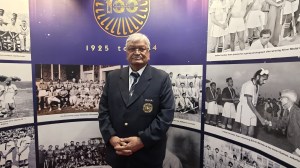
* Tests that need “exceptional approval”, as they are neither provided at the hospital nor are covered under the packages.
Story continues below this ad
These are a few of the glaring gaps that have emerged following a review of implementation of the scheme by AIIMS-Delhi administration, according to minutes of a meeting held by the premier medical institute earlier this week.
The hospital has treated approximately 19,000 people under the scheme since its inception in 2018, according to officials in the know. This is a small fraction of more than 2 lakh patients AIIMS-Delhi admits each year.
One of the biggest issues with Ayushman Bharat that came to light was that the cost of certain implants was higher than the cost specified in Ayushman Bharat package or even the procedure cost itself. “The beneficiaries are not able to avail treatment due to significant difference in package rates and estimated cost of treatment,” according to minutes of the meeting issued by AIIMS-Delhi director M Srinivas.
The example cited was corrective surgery for curved spine.
According to the government, Ayushman Bharat PM-JAY aims to provide an annual health cover of Rs 5 lakh per family for secondary and tertiary care hospitalization to over 12 crore poor and vulnerable families, which form the bottom 40% of Indian population.
Story continues below this ad
The minutes of the meeting suggest that ‘Make in India’ implants be procured “without compromising quality”, and if that is not possible, HoDs should take a call.
“The third list of rates for Ayushman Bharat is being followed at present, and although rates of procedures have been increased over previous versions, there are still procedures where the cost is not enough for good quality implants,” an AIIMS official in the know of the matter said. “In private sector, hospital administrations make up for the loss by adding on another procedure.”
A senior official from the Orthopaedics Department said the Make India clause in the scheme needs discussion, as many implants or prosthetics do not have Indian manufacturers. “We use the best implant available, which can be a little expensive,” the faculty member said.
An AIIMS official said: “From time to time, Ayushman Bharat officials approach us for updating their requirements, and depending on facilities available they ask for quotations from manufacturers. The entitlement of Ayushman beneficiaries also needs to be revised. Unless they do that, patients will be deprived of the best things. We have to see how Make in India fits (into that).”
Story continues below this ad
The minutes showed that items for treatment of Ayushman Bharat patients are procured at the “11th hour” through local purchases. Besides triggering delays, this can also increase costs of consumables and medicines compared to bulk purchases, according to AIIMS doctors.
“This is because you cannot make Ayushman Bharat patients wait for treatment, and certain medicines and consumables are not provided free to any patient at hospitals,” the first official quoted above said. “For such items, there are no rate contracts in the hospital — no storage space, no staff. That is why these were being locally procured.”
The medicines and consumables procured by the hospital in bulk is based on a pre-decided list by a committee that looks into items most commonly needed for treatment of most patients.
The minutes highlight that the number of patients being sent to AIIMS in Delhi to get medical investigations (or tests) done has “increased” over the last one year. Not only are these investigations not available at AIIMS, they are not even covered by the insurance scheme, it noted.
Story continues below this ad
The minutes say: “Majority investigations (cases referred from outside) are not covered under the package and are being sent after availing an exceptional approval.” It was felt that facilities for conducting these tests should be made within the institute.
Another problem that emerged was state health authorities cancelling pre-authorisation at short notice. This, doctors said, led to either a long protracted battle between the hospital and the health authorities if the procedure had already been done, or the patient being discharged if it had not. “The cancellation communications are being received on extremely short notice; i.e. during or just before surgery and sometimes after surgery/ treatment. NHA has been repeatedly intimated regarding the same and their reply is awaited,” the minutes say.
Delays have also been reported due to procedural issues such as requests for unspecified procedures by AIIMS doctors leading to protracted negotiations with third-party administrators from states and UTs such as UP, MP, and J&K delaying the treatment.
“Many a times patient is admitted and it becomes difficult to make a decision regarding treatment/ admission,” the minutes read.
Story continues below this ad
Lack of access to medical records and test reports by the Arogya Mitra leading to delay in submission of claims was also reported in the meeting. Discharging patients without biometric authentication, which is mandatory for claim processing, has also been reported.









